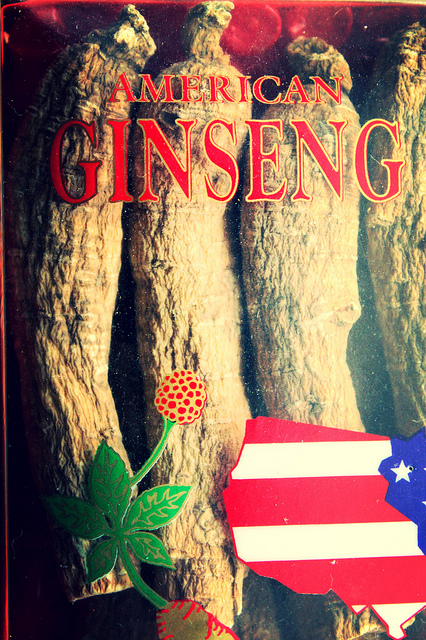Wisconsin ginseng: Sex, drugs, and root robbers
By Louisa Chu
American ginseng from Hsu's Ginseng Enterprises in Wausau, Wisconsin WBEZ/Louisa Chu
1
/ 3

American ginseng from Hsu's Ginseng Enterprises in Wausau, Wisconsin WBEZ/Louisa Chu
1
/ 3
Wisconsin ginseng: Sex, drugs, and root robbers
By Louisa Chu
WBEZ brings you fact-based news and information.
Sign up for our newsletters
to stay up to date on the stories that matter.

I’m flying to Shanghai on Friday packing shang. That is Midwestern slang for what the Chinese consider one of the most treasured gifts from our country: American ginseng from Wisconsin.
The current market value of wild Wisconsin ginseng runs around $600 per pound. The cultivated root fetches a respectable $50 per pound.
The traditional herbal aphrodisiac and stimulant is so much in demand that Ohio saw a grisly so-called “ginseng killing” last year. A landowner killed an attempted poacher, with an AK-47 no less, then hid the body in a mulch pile.
Wisconsin conservation wardens report a rise in meth and heroin addict shangers (wild ginseng hunters) out illegally shanging (hunting wild ginseng) for shang (ginseng). It is actually legal, but only in season with a permit, and permission if on private property.
One of the most confounding characteristics of ginseng is not only that it takes about five years to grow, but that it will never grow in the same plot of land again, wild or cultivated.
Ginseng has created an estimated $20 million annual industry for our neighbors to the north, and sparked a feud between rival groups, the Wausau-based Ginseng Board of Wisconsin and the American Ginseng Association of Marathon.
Shang-heads? Perhaps foam ginseng hats could be the next something special from Wisconsin.


